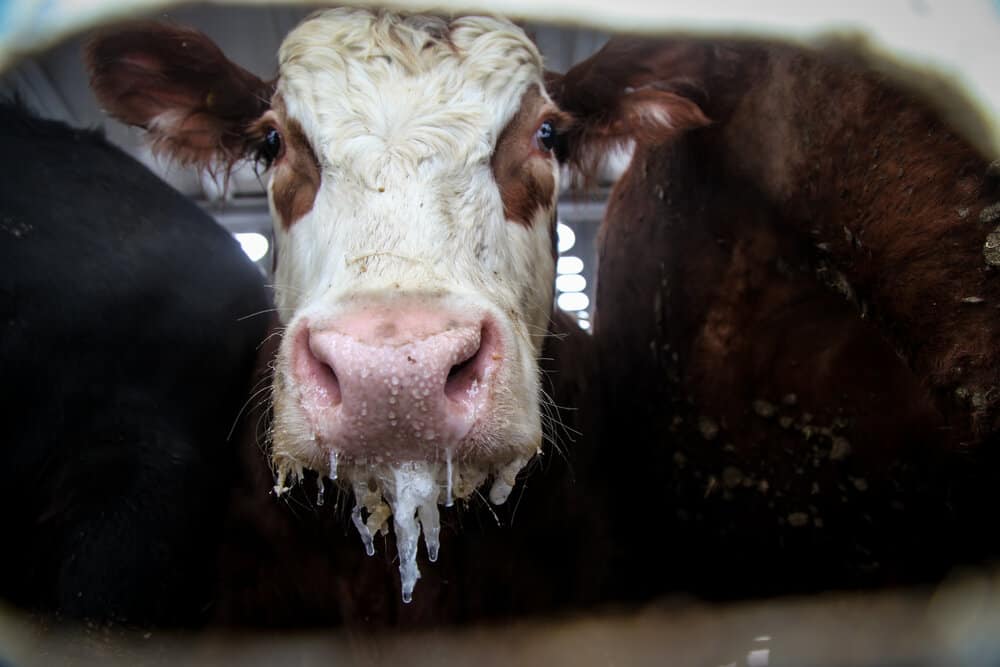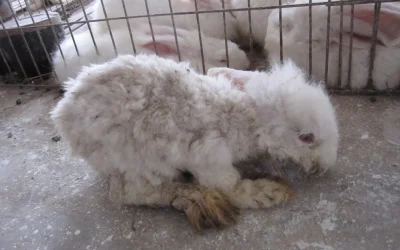Blog
Methane is a powerful greenhouse gas that poses a significant threat to the climate emergency. Although carbon dioxide (CO2) is the most prevalent and well-known greenhouse gas, methane is even more potent. In fact, when measured over a 20-year time frame, methane has a global warming potential that is 80 times greater than CO2. The 2022 Methane Tracker highlighted the gravity of the situation by revealing that methane is responsible for roughly 30% of the current increase in global temperatures.

The 2021 UN Methane Assessment Report shows that methane cuts of 40-45% by 2030 are necessary to prevent global temperatures from rising above 1.5C warming.
Where’s all the methane coming from?
The largest source of human-caused methane emissions is animal farming (32%). Significant portions also come from oil and gas (23%), waste management (20%) and coal (12%).

Nipping methane in the bud
150 nations have signed a Global Methane Pledge, a voluntary effort to reduce global methane emissions by at least 30% from 2020 levels by 2030. However, the current level of commitments and policies is still inadequate compared to the radical action required. Nevertheless, there are several ways we can all contribute to reducing methane emissions, which can help slow down planetary heating and alleviate the worst impacts of the climate crisis.

1. Green your plate with a plant-based diet
Farming ruminant animals such as cows, sheep and goats are by far the largest source of methane emissions. Given that the world’s farmed cattle population is expected to more than double from one billion to over 2.5 billion by 2050, halting further expansion and switching to a plant-based diet can help reduce global demand for animal consumption and contribute to the necessary methane cuts we must achieve this decade. In reference to runaway methane emissions, Dr Peter Carter, IPCC expert reviewer and founder of the Climate Emergency Institute warned: “global veganization is now a survival imperative.”

Adopting a plant-based diet can offer not only environmental benefits but also significant health advantages. For example, in the United Kingdom, a mere 28% of adults and 18% of children aged 5-15 consume the recommended five daily servings of fruits and vegetables. According to researchers at Oxford University, a shift toward plant-based diets could save the British National Health Service (NHS) an estimated £1.2bn annually. These findings demonstrate that embracing plant-based meals can yield not just a healthier planet, but also healthier individuals and communities.
Kickstart your vegan journey with our free Vegan Action Starter Kit, filled with helpful tips and resources. And don’t forget about your furry friends – learn how to reduce their carbon pawprint with plant-based diets too!
2. Demand institutional change
Lobbying cities and their institutions including schools, care homes, hospitals, prisons and workplaces to introduce plant-based menus and plant-based defaults can significantly increase the consumption of healthy plant-based foods. For example, in New York City, hospitals have adopted the Greener by Default approach which has led to 60% of patients opting to stick with the plant-based options. In Edinburgh, the first European capital to endorse the Plant Based Treaty, schools already take part in Meat Free Mondays and the council is exploring plant-based initiatives citywide to encourage more people to embrace a plant-based diet.
Explore our PBT 1.5 Playbooks and find a variety of lobbying resources and tools designed to help institutions make the switch to sustainable practices.
3. Make polluters pay through a methane tax
The idea behind a methane tax is to create an economic incentive for companies to reduce their methane emissions by charging them a fee for every ton of methane they emit. The fee would be set at a level that reflects the environmental damage caused by the emissions and could be increased over time to encourage greater reductions in emissions. Leading organizations such as the International Monetary Fund (IMF) and the World Economic Forum (WEF) have already thrown their support behind a global methane fee of $70 per tonne of CO2 equivalent.

As well as reducing emissions, a methane tax could also level the playing field between animal and plant-based farming practices. By making meat and dairy more expensive and using tax revenues to subsidize climate-friendly plant-based foods, nutritious whole foods would become more competitive and accessible to everyone.
You can advocate for a methane tax by endorsing the Plant Based Treaty. The proposed global treaty would serve as a companion to the Paris Agreement and allow national governments to explore a number of policy tools such as carbon and methane taxes, and subsidies for plant-based foods. Contact your elected representatives and urge them to support the treaty and help pave the way for a sustainable future.
Think methane’s only a climate problem? Think again
Lowering methane emissions offers a multitude of benefits beyond addressing the climate crisis. Reductions can improve the quality of the air we breath and reduce the negative health impacts and costs associated with air pollution. Shifting to plant-based diets can also help decrease freshwater usage and free up farmland for rewilding, which can restore carbon sinks and biodiversity.
As the climate crisis and escalating methane emissions continue to threaten food production and security through drought, flooding and crop failures, any measures we take to curb temperature rises will contribute to a more robust and resilient food system.
Final thoughts
The climate emergency is an existential crisis which will be impossible to tackle without taking on the methane menace. However, we can overcome this challenge through collective action on all fronts. That is why we need to mobilize a movement of passionate climate activists who can demand and implement a transition to a plant-based food system this decade. By doing so, we can create a safer future for ourselves and generations to come.
Are you ready to take action and join the fight for a more sustainable future? If so, we invite you to join your local Plant Based Treaty team today. Simply fill out our application form and you’ll receive an invite to join one of our Friday introductory calls. See you there!

Nicola Harris has over 20 years experience in pressure campaigning in the UK and is a director of communications. She studied Psychology and Computing at Bournemouth University where she learned how to apply our knowledge of human memory and information processing for application in communication, copy writing and media strategies.
More from the blog
Canadian Plant-Based Nutrition And Lifestyle Medicine Conference – Introduction To Blog Series On Diet Change
By Miriam Porter
7 Reasons Never To Wear Angora
By Miriam Porter
Inspiring change towards a more vegan supply
By Nilgün Engin



